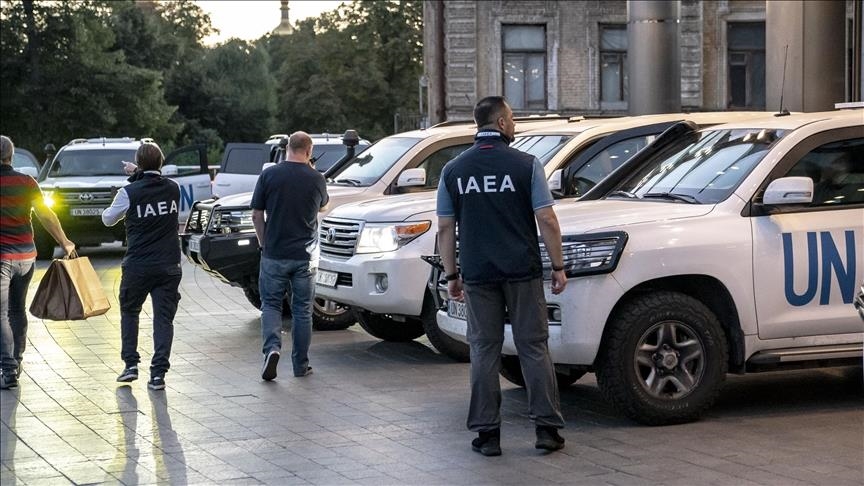

By Anadolu Agency
TEHRAN, Iran
A high-level delegation of the UN nuclear watchdog ended its two-day visit to Tehran on Monday after holding a series of meetings with officials of Iran’s nuclear organization.
Headed by Massimo Aparo, the deputy director general of the International Atomic Energy Agency (IAEA) and head of the agency’s department of safeguards, the delegation returned to Vienna on Monday, the government said in a statement.
During the visit, the two sides discussed “safeguard issues, future cooperation and joint programs”, the statement noted.
The visit, previously scheduled last month, was postponed after the UN agency’s board of governors passed a resolution asking Iran to cooperate with its probe into uranium traces found at three “undeclared sites”.
The probe has emerged as a key sticking point in talks to revive the 2015 nuclear deal, also known as JCPOA, with Western states urging Iran to cooperate with the UN agency and Tehran insisting that the probe be dropped.
According to sources, the probe figured prominently in discussions between the visiting IAEA delegation and Iranian officials on Sunday, with both sides noting progress.
Earlier in the day, while addressing the Tehran Dialogue Forum, Iranian Foreign Minister Hossein Amir-Abdollahian termed talks with the IAEA delegation as “constructive and forward-looking”.
He said Iran was “ready to welcome the return of all JCPOA parties to their commitments” while calling on the US to show “realism, seriousness and real and practical measures”.
He also hinted at the likelihood of a meeting with European Union foreign policy chief Josep Borrell on the sidelines of a regional summit on Iraq in the Jordanian capital Amman on Tuesday, terming it a “good opportunity” to continue talks aimed at the revival of the 2015 nuclear accord.
The indirect talks between Tehran and Washington to revive the agreement, brokered by the EU, have been stalled since August over key disagreements, including the UN nuclear watchdog probe into “undeclared nuclear sites”, which Iran has repeatedly dismissed as a “political move”.
Before the visit, the UN agency said in a statement that its technical committee would visit Tehran to “address the outstanding safeguards issues previously reported by IAEA Director General Grossi”.
Pertinently, a day before the delegation landed in the Iranian capital, Iran’s nuclear agency chief Mohammad Eslami announced that the country’s capacity to enrich uranium has more than doubled “in its entire history”.
Under the 2015 nuclear deal, Iran was allowed to enrich uranium only up to 3.67 percent. The threshold was gradually breached by Tehran after the US walked out of the deal in May 2018.
At present, Iran is enriching uranium up to 60 percent purity at both Natanz nuclear facility in central Isfahan province and the underground Fordow nuclear plant in central Qom province.
We use cookies on our website to give you a better experience, improve performance, and for analytics. For more information, please see our Cookie Policy By clicking “Accept” you agree to our use of cookies.
Read More